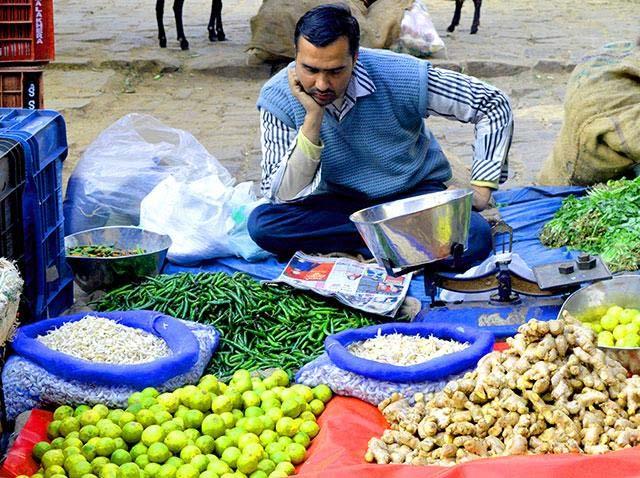A double-digit spike in vegetable prices pushed the wholesale price-based inflation to 0.79 per cent in May, prompting the industry to demand policy action for addressing supply side constraints.
With the firming up of both wholesale and retail inflation the Reserve Bank may delay the interest rate cut despite a sluggish industrial output.
The April WPI-based inflation was at 0.34 per cent and in March it was (-)0.45 per cent while it stood at (-)2.20 per cent in May last year.
Inflation in vegetables stood at 12.94 per cent, a sharp rise from 2.21 per cent, a month earlier. Pulses inflation remained stubborn at 35.56 per cent.
Food inflation rose to 7.88 per cent in May as against 4.23 per cent in April, a government data showed.
"Policymakers need to address through supply side responses the continuous rise in prices of commodities like pulses, food articles, cereals, wheat and other items," Assocham Secretary General D S Rawat said.
Experts said a favourable base effect and a good monsoon would lead to some dip in wholesale food inflation in the immediate term.
"The trajectory of the WPI inflation would be shaped by global commodity price movements. If crude oil prices sustain at current levels, average WPI inflation is likely to exceed 3 per cent this fiscal," ICRA Senior Economist Aditi Nayar said.
As per the data, manufactured products inflation too inched up to 0.91 per cent from 0.71 per cent in April. Fuel and power inflation was (-)6.14 per cent in May.
The hardening of WPI food inflation follows the trend of retail inflation, released on Monday. RBI mainly takes into account retail inflation while formulating monetary policy.
Retail inflation touched a 21-month high of 5.76 per cent in May mainly due to rising prices of food items.
Industrial output contracted by 0.8 per cent in April, the first decline in three months, due to drastic fall in capital goods production and manufacturing activities.
Assocham said the declining trend in IIP and rising WPI may have negative impact in the long run since it states that prices may have risen due to a cut in supply.
The hardening of inflation could further dent the chances of an interest rate cut by the apex bank in its policy review in the months ahead.
In its policy review earlier this month, RBI had retained January 2017 retail inflation target at 5 per cent, though with an upward bias on account of firming of oil prices and implementation of 7th Pay Commission recommendations.
As per the inflation data, prices of egg, meat and fish paced up by 9.75 per cent and in cereals and fruits the rise was 4.60 per cent and 3.80 per cent. However, kitchen staple onion continued to witness decline at (-)21.70 per cent.
"Globally there has been some bottoming of commodity prices, which will get reflected in the WPI going forward. We believe that a range of 2-3 per cent should not be worrisome for the economy and a normal monsoon should ensure the same," CARE Ratings said.
After two consecutive years of drought, the Indian Meteorological Department has predicted an 'above normal' monsoon this year.
Like this report? Sign up for our daily newsletter to get our top reports.





